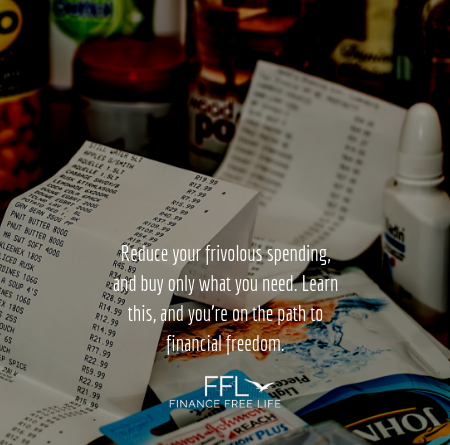Too Much Stuff… How to STOP Buying Things You Don’t Need
In our culture, stuff is central. We are bombarded with advertisements constantly telling us to buy the latest and greatest thing, why we need more junk. There’s a whole industry dedicated to helping us store our excess posessions Often in our culture, the feeling is “more is more” and the saying goes, “he who dies with the most toys wins”. All of these cultural ideas have an impact to how we spend our money, and collect stuff in our lives.
The WHY.
First, let’s talk about why people tend to buy things in excess. There can be many reasons for this, but the big idea comes back to culture – our society says that having more stuff means you have more value, more status.
Culture is the big why behind purchases, but there are several smaller reasons behind frivolous purchases.
- Seeing “stuff” as an investment in your future.
- Buying more “stuff” gives you more security.
- You want to keep up with “The Joneses” (friends, family, neighbors, coworkers, etc…)
- Neglecting to think through current stuff before purchases.
- Financially driven depression – shopping while depressed, and getting a “high” from shopping.
- Buying “stuff” is a habit.
- You’re buying “stuff” to impress people.
- You’re prone to advertising.
All of these items have an impact on why you may be purchasing things you don’t need, overspending, and finding yourself with too much stuff.
Counteract it!
There are several ways you can counteract frivolous purchases in your life. The first thing you need to do is make a conscious effort to change. Notice the amount of excess stuff in your life, and consciously choose to reduce it. Then, implement these tips to counteract frivolous spending.
Think before you spend.
Before you go to purchase something, think about why you are choosing to purchase that specific thing at that chosen time. Do you need it now? Did you need it yesterday? If not, why do you need it right now? Will you need it again in a week? Can you wait a week before pulling the trigger? Often times, I wait just a couple of days before impulsively purchasing something, and a few days later, I change my mind. This saves me the hassle of changing my mind a couple of days after purchasing, and having to return the item.
Think about the items you already have in your home. Do you already have something like it, that can serve the same purpose? Do you need another one? Do you want to store it, maintain it? Can you borrow it, or rent it?
All of these questions are important to ask before purchasing anything to add into your home, especially large purchases.
Analyze the quantity.
When I go to purchase something, often for a project or an activity, I want to buy everything to try it all at once – buying all the gadgets and items I need to complete it, and try something new in one scoop. This leads to a lot of excess items that often go unused. Instead, analyze how many items are actually needed for the task. If trying a new hobby or project, try one of the item, rather than all of the items, before investing whole-heartedly. It’s better to test it out, see if you like it or it works, rather than invest a ton of money and have a ton of excess items.
Value experiences over stuff.
This one is huge. If you can learn to value the experiences with your loved ones, over the stuff, letting go of the tangible items becomes much easier. Our society has a tendency to write our biographies through stuff, with souvenirs and trinkets from everywhere we’ve been, believing these items hold the memories. Truthfully, the memories are within us. Experiences with my friends and family are much more valuable to me than stuff at this point.
Minimize the Stuff.
The point of all of this is to say that through your conscious choices, you can learn to minimize your stuff. As a whole, we need to learn to buy less stuff, and buy just what we need. We can decrease waste, and increase our financial freedom in the process.

